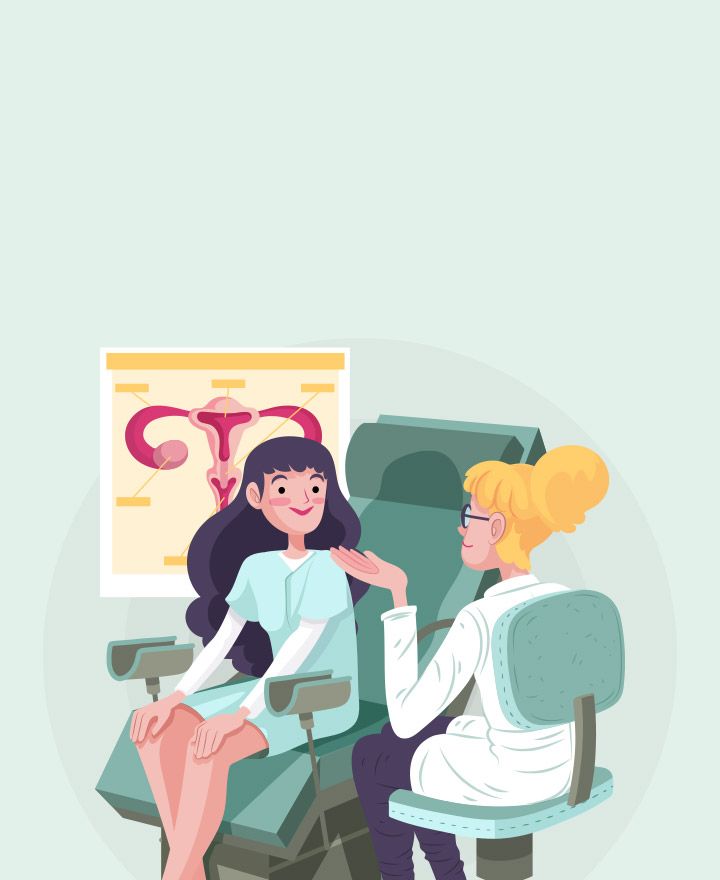

How to do Kegel exercises?
Kegel exercises, commonly known as pelvic floor exercises, strengthen the muscles supporting the uterus, bladder, colon, and rectum. There are several reasons for loss of tone and potency in the pelvic floor muscles, which can result in problems with urinary bladder control and reduced libido. When performed daily for a minimum of fifteen weeks straight, Kegel exercises help enhance bladder and sexual function and strengthen pelvic floor muscles. Read on to know more.
What is Kegel Exercise?
While callisthenics exercises boost your physical fitness, Kegel exercises are useful for strengthening muscles below the bladder, the large intestine, and the uterus. These exercises help both men and women struggling to control their stool or urine.
Urine leaks and bowel control issues can arise as you age, put on weight, after the gestation period, and child delivery or gynaecological surgery in women or surgical prostate treatment in men. These issues can also be present in people with cerebral and neurological abnormalities.
How to perform Kegel Exercises?
You can perform Kegel exercises while relaxing, sitting at a desk or driving. It is like pretending you are urinating and then holding it.
To know how to do Kegel exercises, you need to first identify your pubococcygeal (PC) muscles.
● The PC muscles are identifiable when you pee. They help you hold your urine and stop releasing gases.
● After you've identified your PC muscles, you can work on stretching them.
● For five to twenty seconds, flex and hold onto your PC muscles. After that, let them go.
● You can perform this easy workout 10-20 times in succession. Do three sets a day.
● Gradually, you can perform more contractions and hold each one for a longer period.
Caution
Kegel exercises are safe, but caution is still advised. Here are some things to be mindful of:
● Avoid performing Kegel exercises while urinating. You run the risk of developing a urinary tract infection (UTI).
● Take deep breaths and keep your body relaxed while performing these movements.
● Ensure that you aren't contracting the muscles of your chest, thighs, lower abdomen, or belly.
● Continue with the exercises, but don't increase the number of repetitions. Going overboard can cause tension during bowel movements or urination.
Who Should Do Kegel Exercises?
Urologists frequently advise patients with overactive bladders, pelvic organ collapses, and other urinary tract disorders, including incontinence, to learn and perform Kegel exercises.
Learning how to do Kegel exercises to tone and strengthen the pelvic muscles is important. However, every individual is not a good fit for these exercises. Sometimes, the muscles become overly tight and unwinding them is challenging, which reduces the effectiveness of Kegel exercises and leads to pelvic floor issues. Your physician will advise you regarding your particular circumstances.
Signs of Improvement
Strengthening your pelvic floor muscles takes time. At first, Kegel exercises may seem uncomfortable. However, if you stick with them consistently, you will notice an improvement in the way your muscles function and in your bladder's overall health.
Instead of giving up if you are unable to regulate the urinary tract right away, consider these indicators as evidence that your pelvic floor muscle workouts are having an effect and that you are moving towards improved health:
● Extended intervals between toilet breaks
● Capacity to perform more sets or hold muscles for a longer time
● Resting all night long
Benefits
For men:
● Less dripping after urinating
● Less hesitancy when urinating
● Better stool control
● Better capacity for emptying the bladder
● Better sexual satisfaction
For women:
● Better management of gas, bowel, and urine incontinence
● Enhancements of sexual pleasure
Conclusion
It's important to remember that pelvic floor problems and incontinence are curable. Performing Kegel exercises correctly and consistently will help you gain control over your muscles and prevent conditions like drooping and leaking of urine. It will also help you manage overactive bladders, pelvic organ collapses, and other urinary tract disorders.
One of the important components of our overall wellness is also being financially secured. Healthcare emergencies can happen any time, but a good health insurance policy can protect you from such uncertain situations. To know more about Wellness and other health related tips, visit the wellness corner.
Source: mayoclinic.org, my.clevelandclinic.org
Disclaimer: This blog provides general information and discussions about health and related subjects. The information and other content provided in this blog, website or in any linked materials are not intended and should not be considered, or used as a substitute for, medical advice, diagnosis or treatment. Kindly contact your Doctor before starting a new medicine or health regime.
Related Articles
Fitness Routines For New Mothers
How To Develop The Habit Of Exercising Regularly?
Planning To Workout At Home? Here's A List Of Household Items For Exercising
Published on July 04, 2024














 Health Insurance
Health Insurance  Travel Insurance
Travel Insurance  Car Insurance
Car Insurance  Cyber Insurance
Cyber Insurance  Critical Illness Insurance
Critical Illness Insurance
 Pet Insurance
Pet Insurance
 Bike/Two Wheeler Insurance
Bike/Two Wheeler Insurance  Home Insurance
Home Insurance  Third Party Vehicle Ins.
Third Party Vehicle Ins.  Tractor Insurance
Tractor Insurance  Goods Carrying Vehicle Ins.
Goods Carrying Vehicle Ins.  Passenger Carrying Vehicle Ins.
Passenger Carrying Vehicle Ins.  Compulsory Personal Accident Insurance
Compulsory Personal Accident Insurance  Travel Insurance
Travel Insurance  Rural
Rural